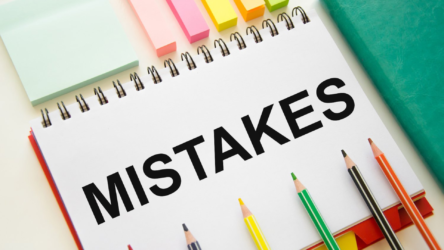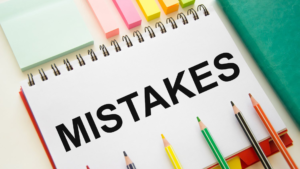- In this 2-part series, we are talking about some of the common money mistakes we see around us. Click here for Part 1.
#1: Being too focused on creating wealth & neglecting protecting your wealth
If you are someone who’s working hard towards building wealth (through your skill sets & investing your money in the right assets), but totally ignoring protecting your wealth, here’s something to ponder over.
It takes just one event/ incident for your wealth to get completely erased. Ask anyone who’s had to get admitted to a reputed hospital in the major metro cities, even if for a small procedure.
And nobody can predict if & when that will happen to you.
Protecting your wealth through adequate health & term cover not only protects your wealth, but it also secures the future of your loved ones. We owe it to them.
There are 3 “IPs” which everyone must have for overall financial wellness
SIP: Systematic Investment Plan for mutual funds
HIP: Health Insurance Plan
TIP: Term Insurance Plan
#2: Trying to meet insurance & investment objectives from one product
There are plenty of insurance policies which entice you to buy on the premise – you pay a certain premium of Rs X every year for the next 20 years, in return for which you get a fixed payout of Rs 1.5X for the following 20 years, and a lumpsum amount of Rs 40X at the end of 40 years from now. Moreover, there is insurance coverage of Rs 10X too.
The sales pitch is that you pay Rs 20X & you get back Rs 70X, that too ASSURED.
Sounds great, right?
However, when you actually do the numbers, you realize that this translates into annualized return of just 5.4% – yes, not even beating the returns from a bank fixed deposit.
Moreover, the sum insured is so low that it effectively doesn’t provide your family any meaningful coverage in case that unfortunate event was to happen. And if you try to wriggle your way out of such a policy after realizing its not meeting your requirement, you get an absolutely raw deal.
When you mix insurance & investment into one product, it doesn’t either solve either purpose – neither the returns are good, nor is the insurance coverage amount.
How can you avoid this situation?
Buy a simple term plan – which just covers your life & doesn’t give you any payouts at the end. It’s the most cost-efficient way of insuring your life.
#3: Obsession with saving taxes, at all costs
Tax saving is a national obsession in India. If you don’t believe, just eavesdrop into any tea/ lunch break discussion in office cafeterias around Jan/ Feb, you know what they are most likely talking about!
Fair enough that if certain tax breaks are available, why not max them out?
However, it’s a problem when
- your predominant or only reason to do a particular investment is tax saving
- the product doesn’t fit into your risk profile & long-term planning required to achieve your goals
Take for instance, insurance products like ULIPs or endowment plans, where tax saving is one of the main selling points. The buyer doesn’t bother to check the long lock-in periods, very low returns & insurance cover as long as “tax benefit milega na”.
Similarly, many investors who otherwise should be taking reasonably high equity exposure to generate wealth, end up with a Public Provident Fund for the same tax benefit criteria. The difference between a tax free 7.1% PPF versus an (assumed) 10.8% post tax equity mutual fund returns over a 15-year time period is as high as Rs 16 lakhs.
Tax planning should be an integral part of your overall financial planning and not done in an ad hoc manner in isolation of your overall financial goals, desired asset allocation & time horizon.
#4: Owning too many financial products
7 credit cards
5 savings accounts
3 demat accounts
These were the number of products held by a 28-year-old I met recently at a social gathering.
As per him, multiple debit & credit cards enabled him to maximize the benefits as different card issuers have tie ups with different ecommerce/ airlines/ hotel brands.
While this may make sense from pure economics of it, these are the possible complications he’s creating for himself:
- Too much of a hassle like remembering the billing dates for different cards etc
- Temptation to over stretch oneself, leading to overleverage on credit cards
- Compiling your expenses across multiple banks/ credit card statements can be a nightmare.
In short, while there may be some gains by way of extra discounts & offers, but there’s lot of avoidable complications.
I follow the KISS principle – keep it simple, stupid!
# 5: Excluding annual payments from your monthly household budget
While interacting with a potential client for her investment needs, I asked her about her monthly expenses. The figure seemed a little off. When I dug deeper into the expenses she had factored in, I realized that she forgot to include many expenses where the payment cycle is only once in 6 or 12 months.
Some such prominent heads are:
- Insurance premiums (car, health, term, etc)
- Annual subscriptions (OTTs, DTH, magazines/ online publications)
- Family vacations
- Wedding/ outstation home visits
- AMCs for various services like AC, pest control, water purifier etc
- Consumer durable purchases
- Car servicing
Only once you include all of these in your expenses, you get a true representative picture of the monthly household budget.
#6: Not building an emergency fund
We discussed earlier about how one event can have a telling impact on our financial wellbeing. This could be a layoff, an accident/ serious hospitalization or a pandemic for that matter.
Basically, anything which stops the cash inflows into the house.
While nobody can predict its likelihood, we can be better prepared by building an emergency funds corpus. And this applies to all – irrespective of the stage of your career.
Few pointers here:
How much of emergency funds to maintain?
Between 6-12 months of your fixed monthly expenses (includes all commitments like EMIs). Where you lie on this scale of 6 to 12 is a function of your responsibilities. Example – if you are having school going children and EMIs, you would want to have that extra cushion.
Where should those funds be parked?
A combination of FDs & specific categories within debt MFs (namely, liquid, money market & ultra short duration ones).
Remember – the primary criteria should be liquidity + safety of capital, not returns. You should be able to withdraw those funds, without any risk of erosion of capital, near instantly.
Don’t even think about investments till you have built this. Its a must have, not worth taking the risk of not having one.
#7: Being under insured
Being under insured is probably is the biggest mistake I observe, after not being insured.
Rs 50 lakh term cover might have been fine when you started your career 10 years back, but now with all responsibilities and inflation impact, it will be a huge risk on your family if you don’t enhance this cover.
The same goes for health insurance as well – just a Rs 3-4 lakh medical cover from your employer can potentially wipe off all your lifetime savings, if you don’t top it up with sufficient additional cover.
What is the right coverage – will vary from individual to individual, depending on your life stage, obligations, age, location etc.
You need to keep revisiting the coverage amount every time you cross important milestones like marriage, parenthood, buying a house etc.
#8: Rolling over your credit card dues
When you opt not to pay your credit card bill in full, you are essentially taking a loan that is atrociously expensive.
Interest rates on credit card dues could be as high as 30-40%. Don’t fall for the innocuous 1.5-2% figure thrown at you, that’s just the monthly interest rate.
Many people fresh in their working life use this method to fund expenses which are way beyond their salaries, without realizing the repercussions.
– When you do this repeatedly, it becomes an addiction
– It is setting the stage for defaults, which can damage your credit scores severely, which in turn severely limits your ability to borrow for your house/ car purchase later in life
So the next time, you are thinking of buying something by rolling over your credit card dues, think 5 times
Hope you found this useful.




